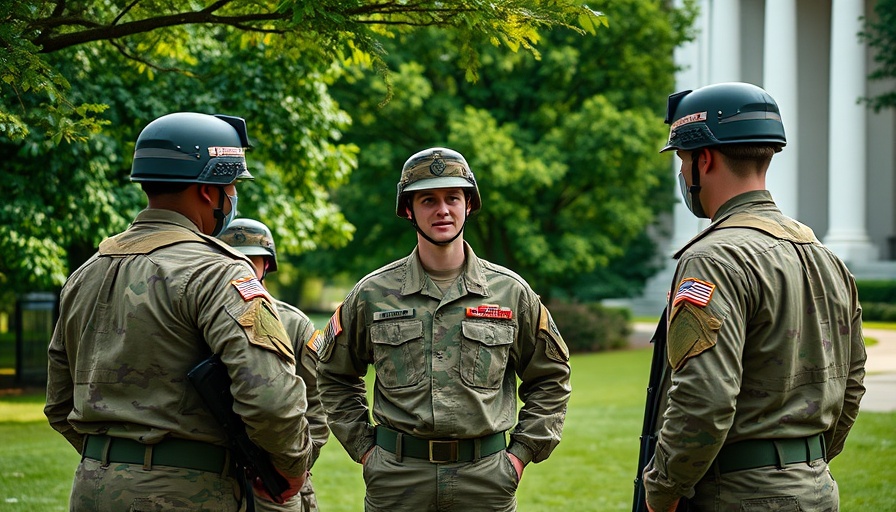
The Potential for Increased Federal Troop Deployment
As President Trump openly entertains the idea of deploying National Guard troops to combat crime in major cities, such as Chicago and Baltimore, it’s essential to understand the legal implications of such actions. This notion raises alarms reminiscent of historical tensions between federal authority and local governance, igniting debates around the Posse Comitatus Act. This law prohibits the use of federal military personnel to enforce domestic policies, yet exceptions can be made under specific circumstances, creating a gray area amidst political maneuvering.
Understanding the Use of the National Guard
Trump's recent deployment of troops followed his contentious engagement with Governor Gavin Newsom of California, where he asserted federal jurisdiction over the National Guard to protect federal properties amid protests. This event sparked a lawsuit questioning the president's authority, shedding light on how state governors might play a crucial role in the process. When considering deployments in Democratic-led cities, the political landscape complicates matters—the push for intervention may not resonate with local authorities, necessitating their consent for action.
How History Influences Current Contexts
Reflecting on the civil rights era, when federal troops often confronted protests against segregation, the potential for conflict and civil unrest looms large. Following historical patterns, the presence of military personnel in civilian affairs can lead to escalated tensions, raising concerns over civil liberties. Legal experts caution that Trump’s strategies might not only breach legal norms but also provoke significant civil backlash.
Current Climate of Crime and Intervention
Amid a reported decline in violent crime rates in major urban centers, Trump's justification for military deployment seems tenuous. Critics argue that invoking federal force undermines local unity and escalates existing conflict instead of providing tangible solutions. By examining crime statistics, one can assess the actual need for federal intervention versus political posturing that might serve electoral motivations more than public safety.
Legal Precedents: What the Law Allows
The nuances of federal and state law play a pivotal role in this discussion. The use of Title 10 to activate the National Guard typically requires permission from state governors, although the unique status of the D.C. National Guard allows for more significant latitude in deployment. How effective interventions can be managed legally poses intricate questions that will see conflict in courts should the president move forward without state collaboration.
Looking Forward: The Future of Federal Intervention
As Trump’s administration seems poised to press on with its plans, one can forecast a landscape fraught with legal battles and protests. Should the president proceed with sending troops into cities without the backing of local governors, it may ignite further national debate about the balance of power between federal and state authorities. Engaging communities through dialogue instead of military presence might yield more fruitful outcomes and address the root concerns about crime and civil rights.
Community Response: A Call for Public Engagement
Bakersfield residents—and indeed all American citizens—must remain vigilant. Engaging with local leaders and participating in community dialogues about safety and federal intervention can empower citizens to impact decisions made at the national level. Advocacy for balanced approaches toward public safety, rooted in community participation and respect for civil rights, is crucial for fostering safe and cohesive neighborhoods.
As President Trump continues to explore federal intervention in American cities, it is vital for community members to remain informed and engaged. By voicing concerns and participating in discussions surrounding public safety and civil rights, residents can influence the direction of policy and hold leadership accountable. Understanding the complexities at play is key to ensuring a future where citizen rights and public safety coexist harmoniously.
 Add Row
Add Row  Add
Add 



Write A Comment